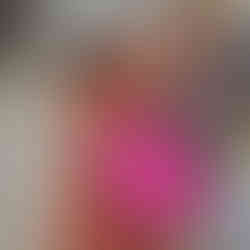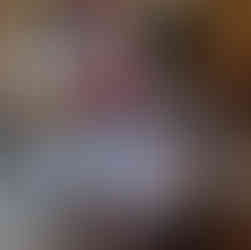For the final stage of the project, model-making and set assemblage became a priority. We worked through the 'To-do' list as follows:
To-do list
1. - Explore, screenshot and measure images of the Newstead Abbey ground-floor piano room using the 3d Virtual Tour found online
This was completed and used as a resource when constructing the floor plan of the installation.
2. - Create concept art of the finalised composition
This was completed by Erin Spavins, as seen below.

3. - Potentially complete a small sketch-up model of the room with added set dec components

*- Finish hat models


*- Photograph assemblages on a covered surface
- Stain the purchased lace cover with coffee for a vintage look
We did not proceed with this, though on reflection staining white objects to a creamier 'screen white' would have been more aesthetically cohesive.
*- Source teacups for the installation
In the end, this was not necessary as our set decoration was space-filling and explanatory of the Mad Hatter even without the tea party motif
*- Source/create fabric rolls
We created fabric rolls out of fabric scraps and waste cardstock tubes, placed within a wicker basket.
*- Source/create fabric rolls box
We sourced many wicker baskets for the final container, settling eventually on a long narrow circular basket.
- Create Mad Hatter 'Make-your-own Hat' colouring/craft pages
Due to the small space allocated, this was neither possible nor necessary.
*- 'Toddler-proof' compositions
This was achieved by using '2D Tools' rather than 3D, sharp objects. This also aesthetically allowed us to merge dreams and reality. In addition, a cordoning rope and various 'DO NOT TOUCH' signs were placed around the installation.
Model Making / project finalisation
Grace and Laini spearheaded hat-based modelmaking, whilst Erin and I focused on 2D tools and other mountboard graphical elements.

We also upholstered a bent-wood chair with scrap fabric in order for it to tie in with the colour palette.
Final installation and reflection
Overall, the installation at Newstead Abbey was a success. There were many elements which were however removed or changed due to the size discrepancies and colour palette, particularly white fabric or reflective crockery. These are as follows:
- White crockery (sans large oval plate)
- White lace
- Mannequin (the deteriorated aesthetic did not cohesively fit with the rest of the scene)
- Flower fairy lights
- Some hats (more modernised hats in particular)
If I were to complete an installation like this in the future, I would focus greatly on different compositions as well as the textural effects of each item within a scene and whether or not they flowed with one another. I would also explore the '2D Tools' concept to a greater degree.


























Comments